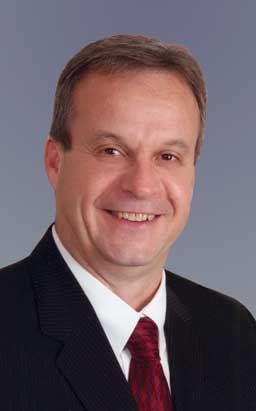President’s message
Passion, evolution, and technology
Recently I was involved in two interesting meetings. Interesting is not the right term. The word has become a crutch in my vocabulary lately, with higher use. I find myself responding that “your idea is interesting” or “this news or change is interesting.” Some have protested, and rightfully so, that interesting is not a descriptive term. It really offers no opinion or insight. Interesting is a neutral, nonjudgmental adjective. More accurately, the meetings were enlightening, slightly unnerving, challenging, and motivating. Since they occurred so closely together, it became natural to compare the discussions and attendees, as they were very different in some ways, but with some underlying similarities.
One was a meeting organized and facilitated by the AVMA in Schaumberg, Illinois, with representatives of the food-production veterinary allied groups and leaders of selected animal welfare organizations, as a first step to uncover some common ground. It really stretched me to try to understand some of the direction and line of thinking. However, I was encouraged that the leadership and staff of AVMA knew the importance of food-animal medicine and the need for a balanced, rational approach to animal welfare.
The other meeting was organized by the AASV communication committee, bringing together Indiana veterinarians Drs Lew Runnels, Ken Meyer, Kirk Clark, Larry Rueff, Max Rodibaugh, and Tom Gillespie to tape a session on the history of swine medicine and AASV. Represented in the group were five AASV past presidents, two Howard Dunne Memorial Lecturers, two AASV Practitioners of the Year, and three AASV Howard Dunne Memorial Award winners. To say it was quite fun would be an understatement and allows me to boldly endorse the Member Recollection section on our Web site.
So what are my key takeaways from these two meetings? Passion, evolution, and technology. These welfare groups were convicted of their beliefs and goals. They deeply believed they had found their noble purpose of life and were living it. Similar enthusiasm exploded from the swine veterinarian group. They loved talking about pigs and veterinary medicine. They were fully engaged and were still exploring how to recruit new people to this profession that had given them the best of careers. No change of significance is accomplished without this passion. It is contagious and drives perseverance.
Incrementalism is the conscious game plan of the welfare groups. Small steps added together complete the journey as thinking evolves. Hearing the AASV members share the history of swine practice reminded me how far we have come in our evolution, from being compensated for vaccinating and processing pigs and giving our veterinary expertise away to being paid for our knowledge to protect the health of our clients’ pigs. Thus, we transitioned from being technicians to consultants. Look at the problems we face today compared to those when AASV was founded 40 years ago. The opponents have changed, and of even more significance, so have the playing field and scoreboard. Change happens so gradually very quickly.
The glaring polar difference in attitudes on technology between the groups was my third observation. Blending with the welfare message was that anything big or “high tech” was bad. It was interwoven as part of the entire message. As you can imagine, the veterinarians embraced new technology. They had seen the positive results of implementing increased knowledge, creative ideas, and new technology, and they were the driver for educating and creating such change. It is disappointing to me to realize that in little more than a generation of time, for more than a few, science and technology have gone from being the hope of solving our problems to being the biggest causes of our problems. To a growing number, innovation is a dirty word.
I was asked in both meetings why I am a swine veterinarian. Interaction with these groups helped clarify my reasons and, more importantly, clarified why I need to communicate them more often. It is pigs, profit, and people.
Swine veterinarians have the biggest opportunity to positively enhance swine welfare. They are the professionals who are training and directing the animal caretakers and influencing decisions on how pigs will be raised. Disease still is the biggest impactor of pig welfare. Every day, our focus is on preventing and minimizing disease.
Swine veterinarians help our clients create a profit. The most critical component of sustainable agriculture is profitability. Producers must have a positive cash flow to be able to continue to exist. We should never apologize for helping our clients to be able to financially support and educate their families, creating an option to allow for rural living doing the job they love.
Swine veterinarians help feed people. We live in a currently hungry world where it is estimated that in 50 years, we will need 100% more food than we produce today, and the majority of this increase must come from technology. What is more noble than to help provide safe, affordable food for a hungry world?
We can be resigned to or drive change. We can find positions interesting or motivating. We can let others define who swine veterinarians are and what pork production will become, or we can be our own creators. Many are willing to fill any void. The actions we take will make a difference. I am confident you will make a difference.
--Kerry Keffaber, DVM

